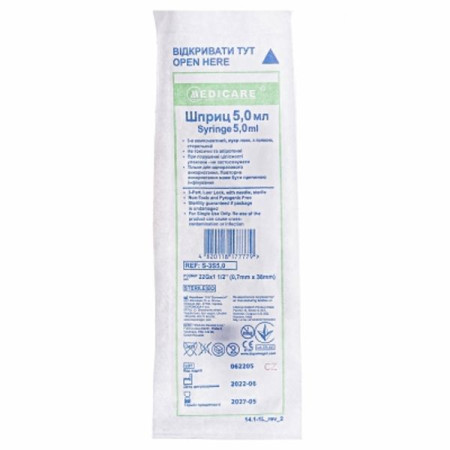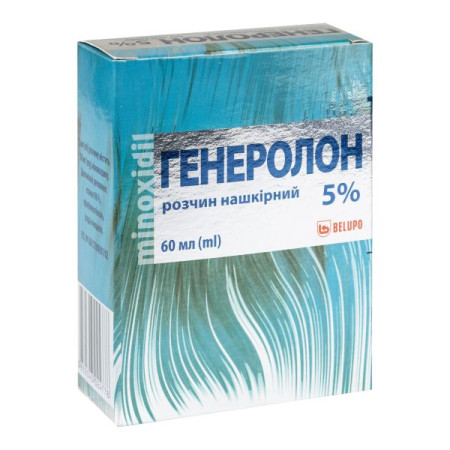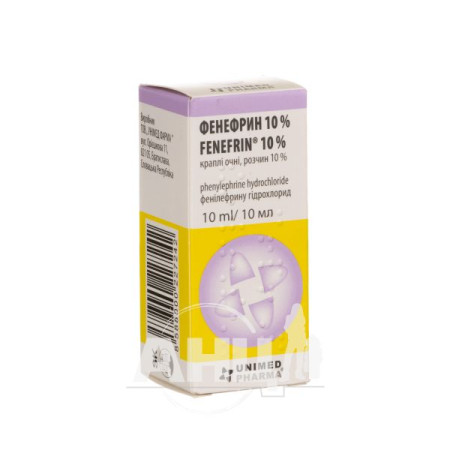Ambroxol-Darnitsa tablets 30 mg No. 20

Instructions for use Ambroxol-Darnitsa tablets 30 mg No. 20
Composition
active ingredient: ambroxol;
1 tablet contains ambroxol hydrochloride 30 mg;
Excipients: lactose monohydrate, corn starch, microcrystalline cellulose, colloidal anhydrous silicon dioxide, stearic acid.
Dosage form
Pills.
Main physicochemical properties: white or almost white flat-cylindrical tablets with a bevel and a score, the presence of barely noticeable grayish inclusions is allowed.
Pharmacotherapeutic group
Medicines used for coughs and colds. Mucolytics. ATX code R05C B06.
Pharmacological properties
Pharmacodynamics
It has been proven that the active substance of the drug ambroxol hydrochloride increases the secretion of the glands of the respiratory tract. Ambroxol increases the secretion of pulmonary surfactant and stimulates ciliary activity, as a result of which the separation of mucus and its excretion (mucociliary clearance) are facilitated. Activation of fluid secretion and an increase in mucociliary clearance facilitate the excretion of mucus and reduce coughing.
The local anesthetic effect of ambroxol has been observed in a rabbit eye model, which may be explained by its sodium channel blocking properties. In vitro studies have shown that ambroxol blocks neuronal sodium channels; binding is reversible and concentration-dependent. In vitro studies have shown that ambroxol hydrochloride significantly reduces cytokine release from the blood and the number of tissue mononuclear and polymorphonuclear cells.
Clinical trials involving patients with pharyngitis have shown a significant reduction in pain and redness in the throat when using the drug. These pharmacological properties, which lead to rapid relief of pain and pain-related discomfort in the nasal cavity, ear and trachea during inhalation, are consistent with additional symptom observation data in clinical studies of the effectiveness of ambroxol in the treatment of upper respiratory tract infections.
After the use of ambroxol hydrochloride, the concentrations of antibiotics (amoxicillin, cefuroxime, erythromycin) in bronchopulmonary secretions and sputum increase.
Pharmacokinetics
The absorption of ambroxol is rapid and fairly complete, with a linear relationship in the therapeutic range. Peak plasma levels are reached after 1–2.5 hours with oral administration of immediate-release dosage forms.
When administered orally, the distribution of ambroxol hydrochloride from the blood to the tissues is rapid and pronounced, with the highest concentration of the active substance in the lungs.
The plasma half-life is 10 hours. Total clearance is in the range of 660 ml/min, renal clearance is approximately 8% of total clearance.
In patients with impaired liver function, the excretion of ambroxol hydrochloride is reduced, resulting in a 1.3-2-fold higher plasma level. However, since the therapeutic range of the drug is quite wide, a change in dosage is not necessary.
Age and gender have no clinically significant effect on the pharmacokinetics of ambroxol, therefore dosage adjustment is not required.
Food intake does not affect the bioavailability of ambroxol hydrochloride.
Indication
Secretolytic therapy for acute and chronic bronchopulmonary diseases associated with disorders of bronchial secretion and impaired mucus movement.
Contraindication
Hypersensitivity to ambroxol hydrochloride or to other components of the drug.
In case of rare hereditary conditions that may cause incompatibility with the excipient of the medicinal product (see section "Special instructions for use"), the medicinal product is contraindicated.
Interaction with other medicinal products and other types of interactions
After the use of ambroxol hydrochloride, the concentration of antibiotics (amoxicillin, cefuroxime, cephalexin, oxytetracycline, erythromycin, doxycycline) in bronchopulmonary secretions and sputum increases.
The simultaneous use of the drug and cough suppressants may lead to excessive mucus accumulation due to suppression of the cough reflex. Therefore, such a combination is possible only after a careful assessment by the doctor of the ratio of the expected benefit and possible risk.
There are no reports of adverse interactions with other medical drugs.
Application features
At the beginning of treatment, cough may increase.
There have been a few reports of severe skin reactions: Stevens-Johnson syndrome and toxic epidermal necrolysis (Lyell's syndrome), which have been associated with the use of expectorants such as ambroxol hydrochloride. These could mostly be explained by the severity of the underlying disease in the patients and/or the concomitant use of another medicinal product. Also, in the initial stage of Stevens-Johnson syndrome or Lyell's syndrome, patients may have non-specific, flu-like symptoms such as fever, aches, rhinitis, cough and sore throat. Symptomatic treatment with cough and cold medicines may be mistakenly used for such non-specific, flu-like symptoms. Therefore, if new skin or mucous membrane lesions appear, medical advice should be sought immediately and treatment with ambroxol hydrochloride should be discontinued.
The medicine contains lactose, therefore patients with rare hereditary forms of galactose intolerance, lactase deficiency or glucose-galactose malabsorption syndrome should not take Ambroxol-Darnitsa.
It should not be used in patients with gastric or duodenal ulcers and in patients with respiratory diseases that are accompanied by the formation of a large amount of liquid sputum. In cases of impaired bronchial motility and increased mucus secretion (for example, in a rare disease such as primary ciliary dyskinesia), the drug should be used with caution, since ambroxol may increase mucus secretion.
Ability to influence reaction speed when driving vehicles or other mechanisms
There are no data on the effect on the reaction rate when driving vehicles or operating other mechanisms. Studies on the effect on the reaction rate when driving vehicles or operating other mechanisms have not been conducted. However, the possibility of dizziness should be taken into account when using the drug.
Use during pregnancy or breastfeeding
Ambroxol hydrochloride crosses the placental barrier. Animal studies do not indicate direct or indirect harmful effects with respect to pregnancy, embryonal/foetal development, parturition or postnatal development.
Clinical studies of the use of ambroxol hydrochloride after the 28th week of pregnancy have not revealed any harmful effects on the fetus.
However, the usual precautions regarding the use of medications during pregnancy should be observed. It is especially not recommended to use the drug in the first trimester of pregnancy.
The drug passes into breast milk. Although no adverse effects on infants are expected, Ambroxol-Darnitsa is not recommended for use during breastfeeding.
Method of administration and doses
Adults and children over 12 years of age should take 1 tablet 3 times a day for the first 2–3 days (equivalent to 90 mg ambroxol hydrochloride per day). Continue treatment with 1 tablet 2 times a day (equivalent to 60 mg ambroxol hydrochloride per day).
Children aged 6 to 12 years should take 1/2 tablet 2–3 times a day (equivalent to 30–45 mg of ambroxol hydrochloride per day).
If necessary, the therapeutic effect for adults and children over 12 years of age can be enhanced by taking 2 tablets 2 times a day (equivalent to 120 mg of ambroxol hydrochloride per day).
The tablets should be swallowed whole with sufficient liquid (e.g. water, tea or fruit juice) after meals.
The medicine should not be used for longer than 4–5 days without consulting a doctor.
Children
Use in children over 6 years of age if other dosage forms cannot be used.
Overdose
Symptoms: The drug is well tolerated after oral administration at a dose of up to 25 mg/kg per day. No severe signs of intoxication have been observed after an overdose of ambroxol. Cases of short-term restlessness and diarrhea have been reported.
In line with preclinical studies, excessive overdose may result in hypersalivation, retching, vomiting, and decreased blood pressure.
Treatment: Emergency measures such as induction of emesis and gastric lavage are generally not indicated and should be reserved for acute intoxication. Symptomatic treatment is recommended.
Adverse reactions
From the sensory organs: dysgeusia (taste disorder).
On the part of the respiratory system, chest organs and mediastinum: dry wheezing, dry mouth and respiratory tract, decreased sensitivity in the pharynx, rhinorrhea, bronchospasm, dyspnea (as a symptom of a hypersensitivity reaction).
Gastrointestinal: nausea, vomiting, decreased sensitivity in the oral cavity, dry mouth, drooling, dry throat, heartburn, abdominal pain, dyspeptic phenomena, diarrhea, constipation.
From the nervous system: headache, dizziness, weakness,
Skin and subcutaneous tissue disorders: skin rash, pruritus, dermatitis. Severe skin reactions: Stevens-Johnson syndrome and Lyell's syndrome have been reported very rarely in association with the use of mucolytic agents such as ambroxol. In most cases, these could be explained by the severity of the underlying disease or the concomitant use of another medicinal product. If skin or mucous membrane reactions occur, the patient should discontinue use of the medicinal product and consult a doctor.
General disorders and administration site conditions: dysuria, increased sweating, fever, mucous membrane reactions.
Expiration date
2 years.
Storage conditions
Store in original packaging at a temperature not exceeding 25 ° C. Keep out of the reach of children.
Packaging
10 tablets in a contour blister pack; 2 contour blister packs in a pack.
Vacation category
Without a prescription.
Producer
PrJSC "Pharmaceutical Company "Darnitsa".
Location of the manufacturer and its business address
Ukraine, 02093, Kyiv, Boryspilska St., 13.
There are no reviews for this product.
There are no reviews for this product, be the first to leave your review.
No questions about this product, be the first and ask your question.


















